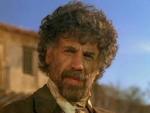'What Everyone Got Wrong About the Last Beijing Olympics' Opening Ceremony
[...] The bar to clear is impossibly high. Zhang's 2008 opening ceremony transcended the genre of the Olympic pageant to become a genuinely historical event. With a budget of $300 million and a volunteer corps of 15,000 performers, the show reached an estimated television audience of 2 billion people. It's a feat that still boggles the mind: The biggest live audience in human history tuned in, not for a moon landing, a political declaration, or even a sporting event, but for a four-hour piece of performance art.
As the most widely watched piece of political theater ever produced, the 2008 ceremony is also one of the most widely misunderstood. [...] commentators in the West repeatedly compared the coordinated choreography of 2,008 fou drummers and tai chi masters to military processions, drawing upon old images of the purpose stadiums have served in communist and fascist states. [...] ESPN was reporting that performers, training 16 hours a day for three months, had in fact been living in army barracks.
[...] "I can't suffer through the London Olympics. … Did you see the Beijing opening ceremonies? We don't have control over our people like that."
[...] they were overseen by a rising star in the Chinese Communist Party, who, in the course of managing the Games, went from provincial chairman to national vice president and heir apparent: Xi [...]
[...] there was a time when the explicit propaganda of state speeches and mass calisthenics filled stadiums in China, but that was before the CCP took part in the Olympics. The first Games attended by Chinese athletes and dignitaries were in 1984 in Los Angeles, where they witnessed what remains one of the most garishly designed and overtly corporate Olympics ever. This sparked an enduring public debate back in the homeland about whether to continue the tradition of propagandistic National Games or adapt to global, commercial sporting culture. In this context, the 2008 Beijing ceremony, which combined mass choreography with pop performances, marked a transition to something new, capable of answering several different directives. At one moment, soldiers from the People's Liberation Army might goose-step to the podium to raise the Chinese flag; at another, pop stars from China and Britain would sing a bilingual theme song, as a promotional stunt, under smiley face fireworks.
[...] Zhang Yimou's show needed to take on separate meanings for internal and external audiences. He planned this from the beginning, when an enormous, white LED screen, representing a blank scroll, rolled out at midfield to mark the beginning of the artistic section. The theme of paper was Zhang's initial concept for the entire ceremony[...] insisting on this "highlight" over the protestations of both local officials and foreign consultants. On one hand, the theme of paper allowed Zhang to play with benign sources of national pride that were politically neutral or even anti-Communist, including the four great inventions of ancient China (paper, printing, the compass, and gunpowder), shan shui landscape painting, and Confucius' Analects. On the other hand, the scroll at the center of the stadium gave the spectacle one subtle but recognizable reference to Maoism: The blank page was one of the chairman's most famous metaphors for his new Chinese state. [...]
In the night's most memorable moment, Zhang went further, concealing and revealing his multiple messages inside 897 intricate Chinese boxes. When the painted page was raised to make way for China's next great invention, movable type, giant printing blocks rose and fell to form the character for hé, or "harmony," in three different scripts. Recitations from Confucius suggested international harmony between peoples ("friends coming from afar," from the very beginning of the Analects), but to local spectators, the character evoked Hu Jintao's doctrine of "Harmonious Society": a code of internal order widely associated with political censorship. A few moments later, [...] the blocks opened to reveal, rather than technological wizardry, nearly a thousand human operators. [...] The machinery of Chinese industry and global commerce was laid bare, revealing the scale of human labor that made it possible. "How did they do it?" [...] "They did it with people."
[...] "We're about to see what happens when an artist gets nearly unlimited resources." The better question to ask was this: What happens when an artist faces nearly unprecedented scrutiny? [...] As Zhang himself described it, "no other artistic activity has had this many layers, and such a high-level review."
[...] son of a Kuomintang officer from Chiang Kai-shek's defeated Nationalist army, Zhang started his life on the wrong side of the People's Republic, growing up in poverty, working as a rural laborer under the Cultural Revolution, and donating blood to buy his first camera. His early films, including Ju Dou and Raise the Red Lantern, received major awards abroad but were banned at home. [...]
Zhang's standing at home changed around the year 2000, when the rebel outlaw finally made peace with the state. This was more or less the plot of his 2002 blockbuster wuxia film Hero, a lavish martial arts epic in which Jet Li gives up on an assassination mission so that China can be united under its first emperor. [...]
[...] For Beijing's Winter Olympics, Zhang has promised something very different from either these films or his previous ceremony. The show on Friday will be smaller in scale, focused on the future instead of the past, drawing on the talents of ordinary people, and globally rather than nationally minded.'
2008 Beijing Olympics opening ceremony: How Zhang Yimou pulled off a masterpiece for multiple audiences. (slate.com)
This post has been edited by Azath Vitr (D'ivers: 03 February 2022 - 05:21 PM
 Malankazooie, on 02 February 2022 - 11:55 PM, said:
Malankazooie, on 02 February 2022 - 11:55 PM, said:

 Help
Help
















